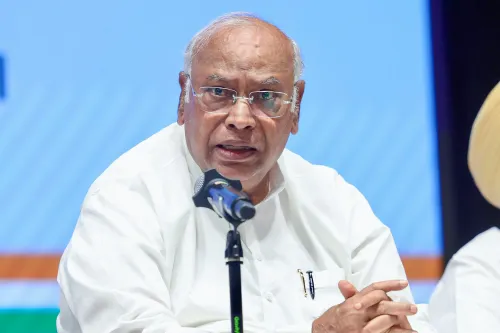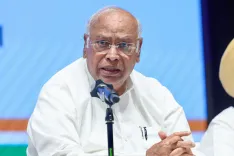Are Financial Fraud Trends in India Declining Due to Countermeasures?

Synopsis
Key Takeaways
- Financial fraud trends are declining in Tripura due to effective countermeasures.
- Tripura Police established a dedicated Cyber Crime Police Station.
- Training for law enforcement is essential to combat evolving cyber threats.
- Awareness campaigns are crucial for public protection.
- AI poses both benefits and risks in the context of cyber fraud.
Agartala, Aug 30 (NationPress) Just like numerous other states, Tripura is grappling with cybercrime incidents, particularly financial frauds, which saw a significant surge last year. However, according to Tripura's Director General of Police (DGP) Anurag, this trend seems to be reversing this year due to various countermeasures implemented.
The DGP mentioned that the integration of digital technology into daily routines has made essential tasks easier, but has also paved the way for a multitude of cyber crimes—each being borderless, faceless, and perpetually evolving.
According to reports from the National Cyber Crime Portal, which has been operational since 2021, India suffered a staggering financial loss of Rs 22,845 crores last year (2024), marking a 206 percent increase compared to Rs 7,465 crores lost in 2023.
Furthermore, Anurag highlighted that nearly every type of crime, including murders, now has a cybercrime component, as most perpetrators utilize mobile devices or computers during their offenses, thereby invoking the cybercrime statutes.
In June of this year, the Tripura Police established a dedicated Cyber Crime Police Station in Arundhutinagar, located on the outskirts of Agartala.
The DGP reported that since 2021, Tripura Police uncovered online fraud totaling Rs 46.96 crores, with Rs 5.2 crores successfully secured and Rs 34 lakh already returned to victims.
Plans are underway to recover the remaining funds following additional verification over the next three months. The police have identified 20,387 bank accounts linked to cybercrime incidents in Tripura.
Stressing that cybercrime is on the rise nationwide, Anurag, who previously served with the Central Bureau of Investigation (CBI) and specializes in various cybercrimes, reported that India experienced a total fraud loss of Rs 1.98 crores in 2021; this escalated to Rs 4.62 crores in 2022, Rs 9 crores in 2023, and a dramatic rise to Rs 25.52 crores in 2024.
The Tripura Police have initiated multiple measures, including the launch of the first dedicated cybercrime station, to address complex cyber offenses. Officers in the cybercrime cell, as well as personnel from various areas of Tripura, are undergoing training both within and outside the state.
Resources from the State Forensic Science Laboratory, along with forensic labs beyond Tripura, are being utilized to tackle cyber crimes, alongside a series of awareness campaigns under ‘Prayas’—Tripura Police’s own public outreach initiative aimed at enhancing their presence on social media.
Meanwhile, Tripura's Chief Minister Manik Saha remarked earlier this week that security forces and law enforcement are now confronting the dual threats of terrorism and cybercrime, both of which pose substantial dangers to the populace.
“Mobile networks can be more perilous than AK series rifles, as electronic systems can inflict significant harm if individuals do not exercise caution while navigating digital or electronic environments,” stated Saha, who also oversees the home portfolio.
The Chief Minister further emphasized the necessity for police and law enforcement to combat the elusive entities involved in digital crimes aimed at defrauding innocent citizens.
“While we discuss the advantages of Artificial Intelligence (AI), it also presents challenges. Fraudsters can exploit AI against unsuspecting individuals. It is crucial for the public to remain vigilant to safeguard themselves against fraudulent schemes,” he concluded.









